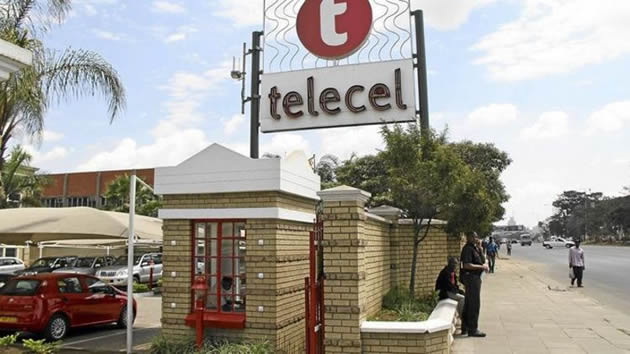Get online and sharpen your skills, acquire new ones


One of the simplest schooling experiences afforded by the Internet is the YouTube platform where video tutorials on “how to . . .” do virtually anything are posted.
#Digital Dialogue with Delta Ndou
DESPITE the steep cost of data and general expenses related to Internet access, a considerable number of locally based Zimbabweans manage to regularly go online, if the incessant Facebook and Twitter posts are anything to go by. While motives for desiring to be online differ, it seems there are very few people who go online with the intention of studying, gaining new knowledge or skills – most people seem to gravitate towards social media.Yet there are a number of leading global institutions that offer free courses online which one can enrol for and study anywhere, anytime and at any pace. Referred to as Massive Open Online Courses (MOOC), these opportunities to learn, to up-skill and improve oneself are an Internet connection away.
The virtual equivalent of long distance learning, the MOOCs are designed for online audiences and teaching is primarily conducted through short pre-recorded video lectures ranging from between five to 20 minutes that are accessible to the participants at any time.
Whatever line of work one might be in – there is always room to upskill and whatever digital skills one might lack – there is always the opportunity to acquire the necessary knowledge online. Through student discussion forums, homework or assignments, and online quizzes as well as exams, the MOOCs ensure valuable skills and knowledge transfer to those who are invested in improving themselves.
As long as you have an Internet connection, you are a click away from quality and free online education offered by some of the world’s best institutions -one could use their time online to develop their skills and acquire new ones.
Taking part in these MOOCs classes is as easy as opening a Facebook account or registering for mobile money. The labour involved in joining a MOOC is usually just four easy steps, which are namely: user registration and authentication, password hashing, form validation and then you are accepted into the course.
Courses can range from technical subjects like “Data Analytics” to academic subjects like “English for Journalism” to business inclined courses such as “Leadership and Influence”. One could of course use that same time to watch #Zvirikufaya videos instead but just in case you need an extra skill or just want to improve on an existing one – take time to check out the MOOCs.
For many courses you do not get a qualification but you do get a certificate. Qualifications can be granted for accredited courses that cost from as little as $20 offered by very reputable global universities that offer MOOCs classes from which students can acquire credits to enrol to other courses of a higher grade.
YouTube and its “how to . . .”
tutorials
I know a number of individuals who make a living through some digital skill that they acquired informally – they are “self-taught”. Sometimes all that stands between an individual and the goals he or she wants to attain is a little Internet access and a whole lot of passion to learn.
One of the simplest schooling experiences afforded by the Internet is the YouTube platform where video tutorials on “how to . . .” do virtually anything are posted. From “how to bake” to “how to change a tyre on a car/bicycle” to “how to make a website” or “how to sell a product” and “how to write a proposal/CV/report/speech” – YouTube is awash with video tutorials (some better than others) explaining step by step how to do stuff.
If joining a MOOCs seems too formal and it feels like too much trouble, then one can always consider checking out YouTube tutorials on any subject of their choice or any issue that is of interest to them. I used to have a hard time configuring a new phone and sometimes I would end up paying someone else to help me but now I check with YouTube first and usually get to do it myself.
From “how to set a password for apps on Android devices” to “how to put passwords on pictures, video and audio folders” – I learnt a few tricks from YouTube tutorials on securing my phone and other devices. For those who may not relish the idea of trawling through YouTube looking for specific information or tutelage, there is always the option of signing up for webinars.
A Webinar is a web-based seminar often in the form of a presentation, lecture or workshop that is transmitted over the Web using video conferencing software so you can “attend” by simply getting online and logging on to the session. The main characteristics of Webinar sessions are its interactivity such as the ability to give, receive and discuss information in real-time.
It is like attending a meeting and participating – just that you will do so online. Webinars are especially attractive to those who want to discuss an area of “specialty” that corresponds to their line of work – you can find out the latest innovations in your industry, share, listen and learn from other participants attending the same webinar remotely from different geographic locations and varying time zones.
Keeping abreast of new developments in your industry or sector is easier to do when you look out for webinars and set aside the time to join in as audio and video presentations are also availed. There is always an opportunity to learn something new online – one need not squander it.
If all you had was 30 minutes of free access
Data is expensive, Internet access is a luxury for most people and many others only get online when they are at work. So the opportunity to access the Internet and benefit hinge on affordability and access. One of the impressive feats made by the ZOL company is availing 30 minutes of free Internet access at its wifi hotspots – this is a very progressive freebie in an economy where freebies are hard to come by.
I think any determined, eager-to-learn and focused individual who just needs an Internet connection to get started can put these 30 minutes of complementary ZOL wifi to good use. In case you are at a loss as to what you might want to study or learn about, an article I wrote some weeks back regarding connecting your talent to a technology might be worth pondering.
You know what you love and what you are interested in; find out how technology can enhance your goals or bring your closer to the dreams you are pursuing. Among some of the “self-taught” but remarkably talented people I know is one Nqobizitha “Enqore” Mlilo, who is video director and animator who started breaking ground at 18 and now runs a multi-award-winning digital media startup called Nafuna.
Success takes hard work, passion and luck, but sometimes success is just an Internet connection away. Try to end the week by evaluating what new thing you learnt while online -apart from scintillating social media conversations – there is a whole world of knowledge at your fingertips.
Delta is Head of Digital at Zimpapers. Follow her on Twitter: @deltandou








Comments